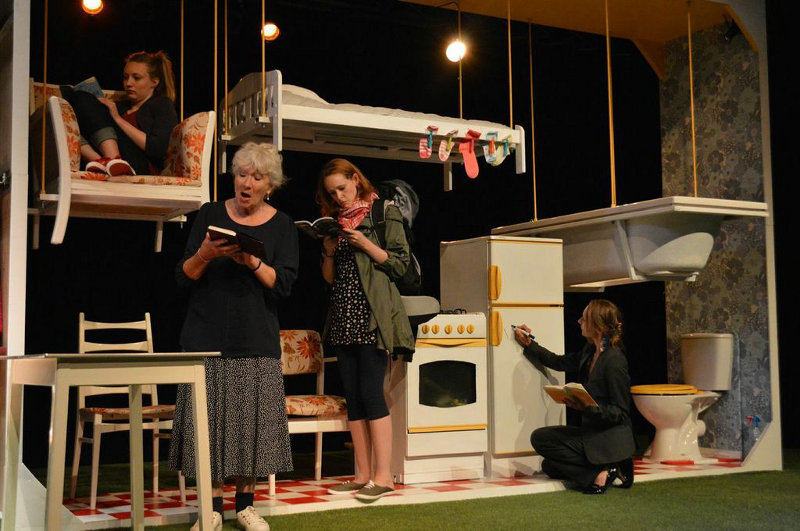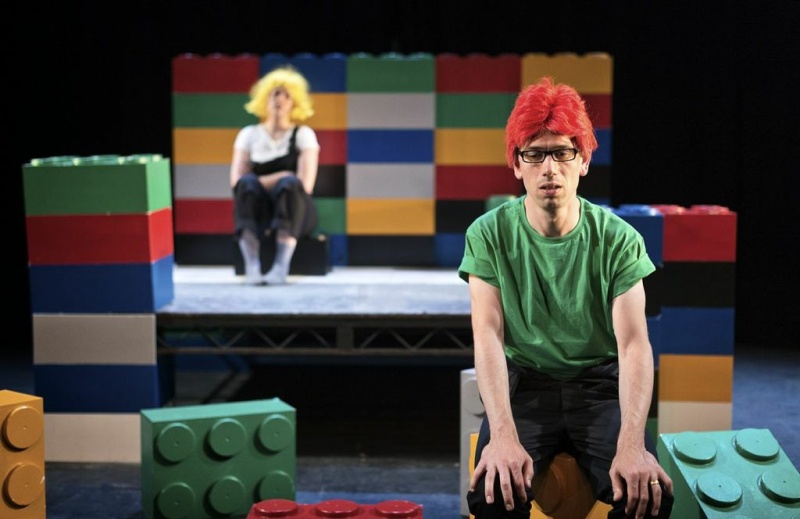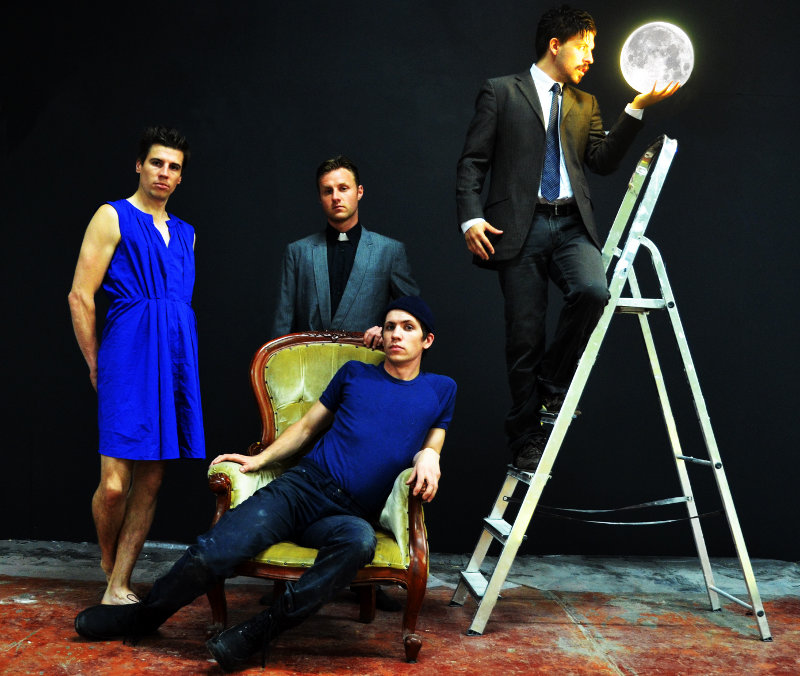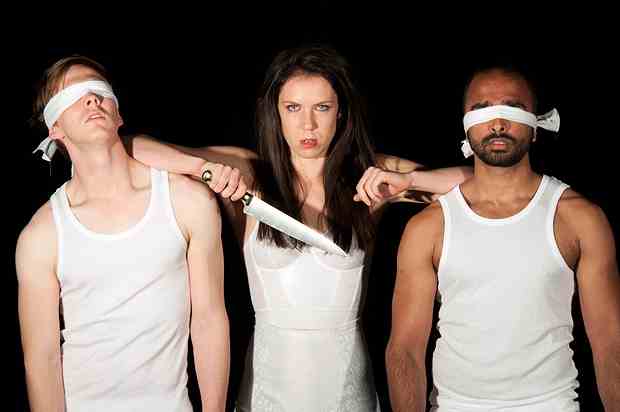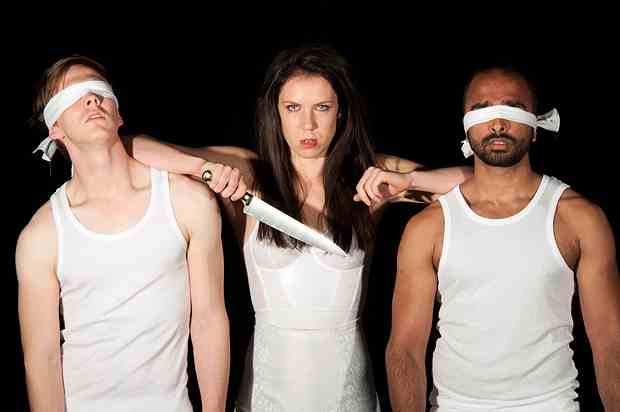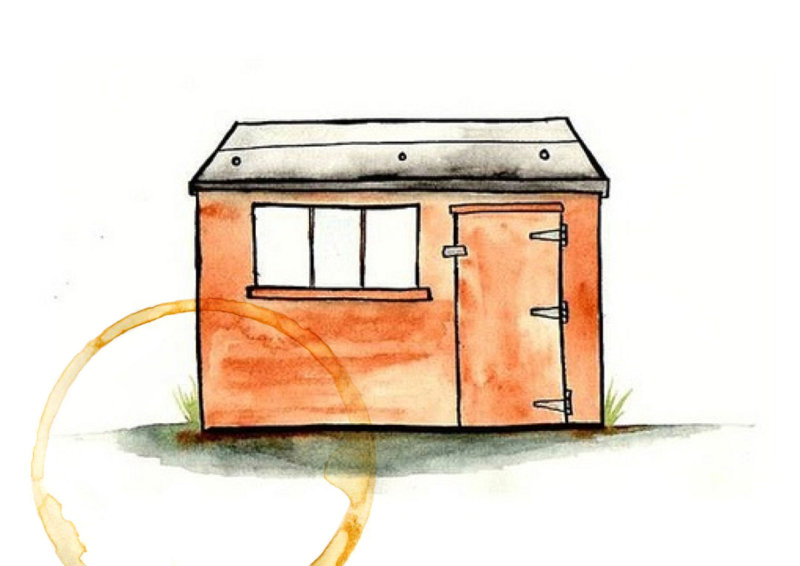Paper Bird’s ten-year anniversary show utilises a cast of four playing multiple roles to explore the stories of six women of various ages. Developed with communities in the North of England and through a detailed research process, this devised production explores a huge range of themes relevant to women – from growing to ageing, from being restless to settling down, and from feeling trapped to, ultimately and importantly, the notion of having choice.
Like previous productions In a Thousand Pieces and Thirsty, this piece has a strong visual aesthetic and communicates meaning through symbolism just as much as action. The opening stage picture presents us with a vintage-looking domestic scene suspended in an open box, where an armchair, bed and bath hang as if framed for posterity. The pre-set is accompanied by an acoustic soundtrack of guitar and cello, which sounds whimsical but quite upbeat, and proves to be an effective indication of how the show itself will pan out.
A voiceover of an elderly woman introduces one of the key themes of the show, explaining how we start in the womb, where we are growing older before we have even entered the world, and then the stories begin to unfold. Complex and intertwined narratives are presented, as we see a young woman desperate to study at Cambridge and her conflict with her mother who plays dumb but is not (a relationship likened well to Juliet and her Nurse), and another woman who is also desperate, this time to go travelling and change her unsatisfactory life after a dear friend dies. The middle-aged actor in particular plays a variety of characters, including the young woman’s mother, a lecturer and a woman hoping to sell the ‘Clip Toe’, a domestic device that she has invented. The idea here is that this actor is being asked to play lots of roles to symbolise the pressure on women to do just that, but at times the conceit feels a little laboured. More effective is the moment in which marketing people fail spectacularly to label the inventor character, asking if a woman is not a wife, a mother or a business woman then what is she? Instead, they invent a character for her, a sinister-seeming ‘have it all’ woman for whom the ‘Clip Toe’ would make life perfect.
For me, by far the most engaging story was that of the older woman and her elderly mother, both played exquisitely. It was in the exploration of ageing that the production really seemed to take flight, and it is no surprise to read that initial production research took the form of dialogue with women over 60. The show gained momentum as it explored dementia and loss of identity in a way that felt much more exciting than some of the previous sections, well delivered as they were. There was something very real about the portrayal of the elderly woman character in particular, and some of the more inventive physical sequences happened here, when the ensemble cast used rhythm and gesture sequences to indicate synapses misfiring as the elderly woman struggled to remember elements of her own story. Later too the cast worked together to help this character become mobile, then bathing her in the suspended set in a deeply poignant and affecting sequence. Associated issues to do with ageing were very well examined and played: the idea that roles for female actors seriously diminish with age; seeing your mother’s face in the mirror where once was your own; and the fact that hands show your age in a way that cannot be disguised. This part of the narrative felt stripped bare and all the more engaging for it.
There is plenty to spark interest and emotion here, and the performers are undeniably skilled, but what I have most loved about Paper Birds’ previous productions has been the innovation and physicality, which I felt at times, with the other character’s narratives, was not as compelling. The extensive research and well-rounded stories are clear here, but feminist theory is a little underused and some of the symbolism is too obvious to be really effective.
The message at the end is very clearly presented – that ultimately it is your life and your choice. This is a message of hope, for the elderly woman does not have hands that work, but can still dance with her feet. The remaining character’s conclusions are less clear, but then, they are still on a journey and there is the feeling that it is one that they do have the power to change.

